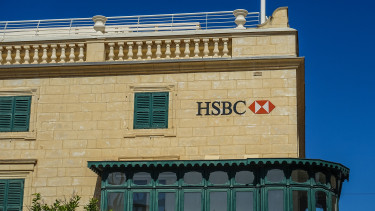EU to sign with Pfizer on new promising vaccine candidate - von der Leyen

Vaccine candidate 90% effective
Pfizer and BioNTech announced yesterday that their vaccine candidate was found to be more than 90% effective in preventing COVID-19 participants without evidence of prior SARS-CoV-2 infection in the first interim efficacy analysis. Their analysis evaluated 94 confirmed cases of COVID-19 in trial participants.
The case split between vaccinated individuals and those who received the placebo indicates a vaccine efficacy rate above 90%, at 7 days after the second dose. This means that protection is achieved 28 days after the initiation of the vaccination, which consists of a 2-dose schedule. As the study continues, the final vaccine efficacy percentage may vary. The independent Data Monitoring Committee (DMC) has not reported any serious safety concerns and recommends that the study continue to collect additional safety and efficacy data as planned. The data will be discussed with regulatory authorities worldwide.
Pfizer and BioNTech are continuing to accumulate safety data and currently estimate that a median of two months of safety data following the second (and final) dose of the vaccine candidate – the amount of safety data specified by the FDA in its guidance for potential Emergency Use Authorization – will be available by the third week of November.
Based on current projections we expect to produce globally up to 50 million vaccine doses in 2020 and up to 1.3 billion doses in 2021.
European Union looking to buy
A few hours after the companies' press release, European Commission President Ursula von der Leyen said on Twitter that the EU would buy up to 300 million doses of the vaccine.
Great news from & on the successful results of their latest clinical trial for a vaccine. European science works! to sign contract with them soon for up to 300 million doses. Let's keep protecting each other in the meantime. @pfizer
— Ursula (von) November 9, 2020
The 27-member bloc with a population of 450 million has also signed supply deals with AstraZeneca (300 million doses with an option to buy 100 mn more), Sanofi (300 mn doses) and Johnson & Johnson (200 mn doses with option for another 200 mn) for their potential COVID-19 shots.
There are currently more than a 100 vaccine candidates for COVID-19 around the world but none has been approved yet for general use.
In line with the 17 June EU Vaccines Strategy, the European Commission and Member States are securing the production of vaccines against COVID-19 through Advance Purchase Agreements with vaccine producers in Europe. Any vaccine will need to be authorised by the European Medicine Agency according to regular safety and efficacy standards. Member States should now start preparing a common vaccination strategy for vaccine deployment.
Only part of the European Union population can be inoculated against the novel coronavirus before 2022, Reuters cited EU officials as saying in an internal meeting in late October, as the vaccines the bloc is securing may not prove effective or may not be manufactured in sufficient doses.
The EU approved its All Member States will have access to COVID-19 vaccines at the same time on the basis of population size, the European Commission stated in mid-October.
World Health Organization (WHO) Director-General Dr. Tedros Adhanom Ghebreyesus called on Monday Pfizer's and BioNTech's announcement about the high efficacy of their coronavirus vaccine candidate "encouraging."
"We welcome the encouraging vaccine news from @pfizer & @BioNTech_Group & salute all scientists & partners around the who are developing new safe, efficacious tools to beat #COVID19. The is experiencing unprecedented scientific innovation & collaboration to end the pandemic!," he tweeted.
Dr. Bruce Aylward, the WHO's senior adviser, told AP Pfizer’s vaccine could “fundamentally change the direction of this crisis” by March, when the U.N. agency hopes to start vaccinating high-risk groups.
Dr. Anthony Fauci, the U.S. government’s top infectious-disease expert, said the results suggesting 90% effectiveness are “just extraordinary,” adding: “Not very many people expected it would be as high as that.”
Dr. Jesse Goodman of Georgetown University, former chief of the FDA’s vaccine division, called the partial results “extremely promising” but ticked off many questions still to be answered, including how long the vaccine’s effects last and whether it protects older people as well as younger ones.
Cover photo: European Union, photo issued of the European Council's video conference held on 29 October 2020








